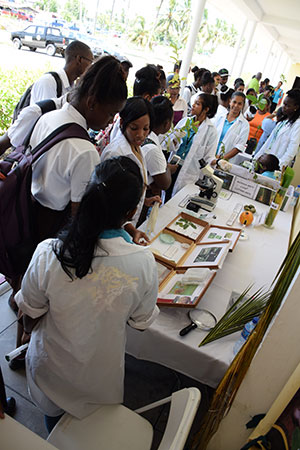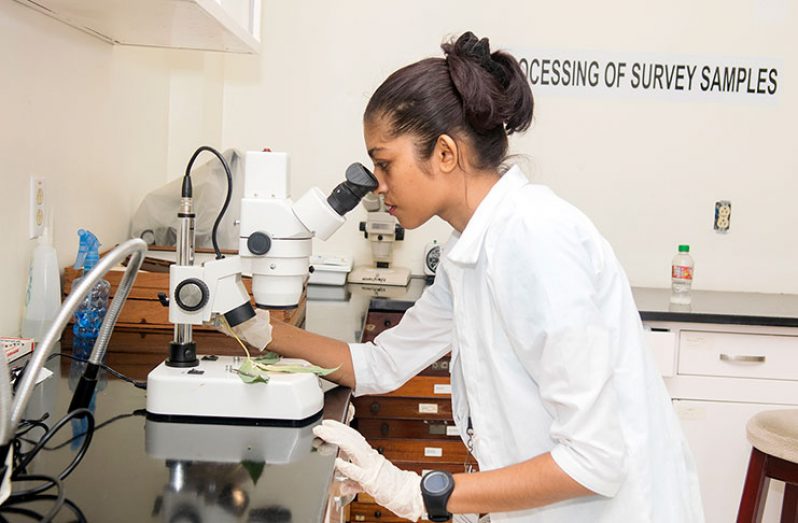Insects which feed on crops and destroy them in the process are commonly known as pests.

The devastating impacts of crop destruction negatively affect the farmers’ livelihoods and consumers’ pockets.
As such, the National Research and Extension Institute (NAREI) has a department which specializes in the identification and diagnosis of insect pests. This department is called the Plath Pathology, Entomology and Weed Science. Some common pests that the department encounters are leafminers, aphids, thrips, mealybugs, mites and achousi ants.
Entomology is a branch of science which deals with everything about insects and other related arthropods. While, entomology is the study of insects, the persons who study insects are called entomologists.
This department is staffed with a Research Scientist, Research Assistants, and Research Technicians. They are tasked with Research and Development and diagnostics. Currently, focus is being placed on environmentally friendly ways of controlling the Red Palm Mite and the Acoushi Ant just to name a few.
This department also keeps an extensive collection of insects which affect various crops. These insect boxes are kept for referencing purposes.
Services provided by this department are free of cost. They are done with the intention of assisting farmers to find solutions to their plant pest problems. As it relates to research, this department strives to find new environmentally friendly treatment options to help solve and or manage these issues.
For example, one achievement of the department was the creation of the Acoushi Ants Bait. This bait was developed following a series of complaints from farmers about the Acoushi Ants, which have the capacity to destroy a grown plant in one night.
Samples of affected/infected plants, fruits and soil need to meet following requirements before they could be accepted in the laboratory:
1) Samples should be stored in zip lock bags (sealed bags)
2) Samples should be correctly labeled
a) Name
b) Location
c) Phone number
d) Name of crop
3) Samples should be stored in a cooler to prevent contamination, especially if the sample is coming from a great distance.
4) Samples should be brought into lab as quickly as possible – try not to keep samples on hand over night because they will degrade and a fresh sample will be required.
5) All fruit samples should be sent in with both the fruit and leaves.
Please note that NAREI’s Plant Pathology, Entomology and Weed Science Laboratory does not test for pesticide use on any plant material.
(Contributed by NAREI)




.png)









